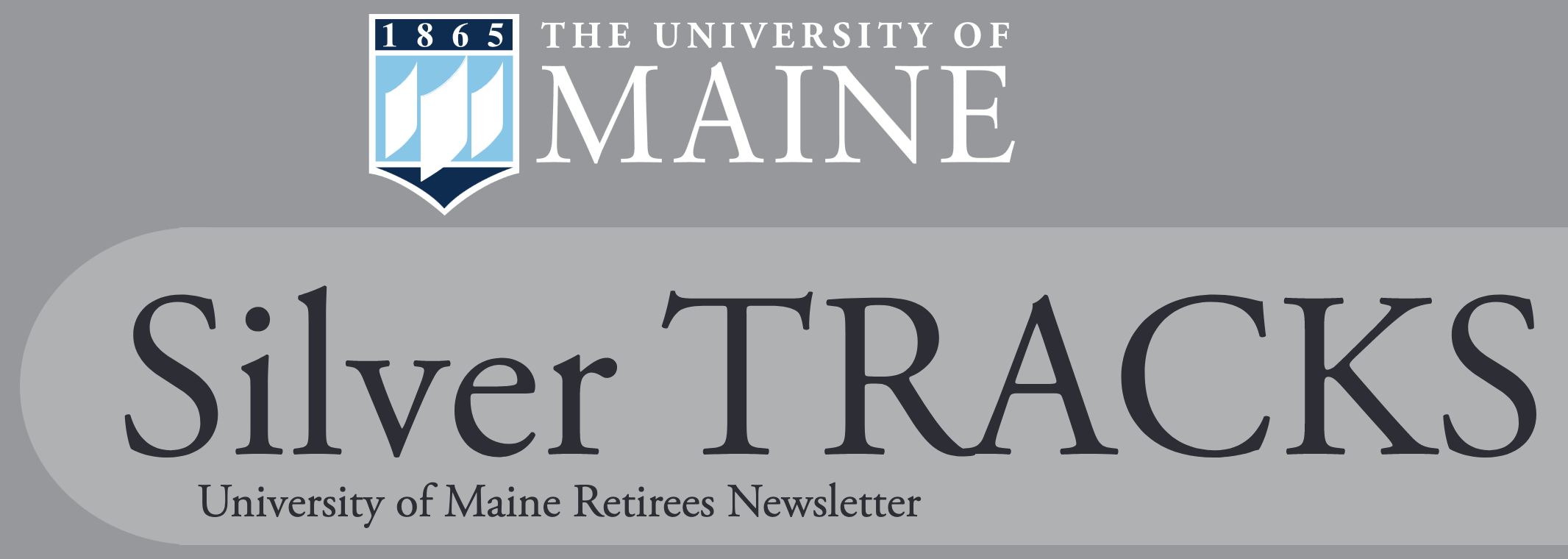
Silver Tracks Winter 2021
Message from the Chair Re: The PCRE and the Health Insurance Saga
As Chair of the President’s Council of Retired Employees, I began to think about the upcoming academic year in late summer and what issues we would need to deal with. At just this time I received an unexpected letter in the mail stating that retiree health insurance was about to undergo a sea change. It was immediately clear that the Council could and should play a role in sorting this all out for those we represent. We elected to establish ourselves as a source of information to help retirees understand what was happening at the System level, and we hoped to assist by becoming a liaison between the UM administration and retirees. We contacted the heads of all the unions as well as UM HR. At the same time, as each of us dealt with AON on an individual basis, we discussed how matters were progressing at our meetings, developing a data base. In the end, retiree and Union activism were central in changing the course of the changeover, leaving the existing health care package intact as an option. The amount of effort we were putting in was well-known to both the Administration and the Union leadership and was certainly worth our time. It serves as an example of what we as a group representing retirees are capable of accomplishing and I would like to thank all Council members for their time and enthusiasm in pursuing answers.
Sincerely,
Harold “Dusty” Dowse
Prof. Emeritus of Biology and Mathematics, and Chair, PCRE
Retiree AtHomecoming 2021 — Save the Date
Due to the uncertainty caused by the pandemic, the Committee has decided to host a virtual Retiree AtHomecoming on Zoom scheduled for Tuesday, June 1, 2021, from 10:00 a.m. to 12:00 noon. Our goal is to have a guest speaker followed by breakout sessions of your choice. More information will follow as soon as details are finalized. We look forward to your participation. Visit our website where we will post more details as they become available.
Oral History Project
Even though 2021 would have been the fifth year of the All Maine Women and Retiree Council’s oral history project, due to restrictions caused by COVID, we have decided not to go ahead with interviews this year. We are endeavoring, though, to find a way to assure that the past two year’s compilation videos can be placed on our website.
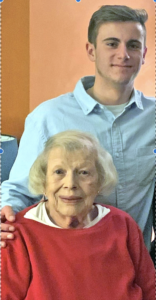
UMaine Retirees Harold “Brownie” Brown Scholarship Awarded
This year’s recipient of the UMaine Retirees Harold “Brownie” Brown Scholarship Fund is Carter Verrengia, grandchild of June and Rupert Stafford ’59, ’69G, both retirees from the University of Maine. From Hebron, Connecticut, Carter has been visiting UMaine since he was a young child, attending hockey and basketball games. He fell in love with the campus and hoped one day he would attend as a student. Carter is now a member of the Class of 2023 working on a double major in Finance and Finance Economics. The endowed scholarship fund has grown to over $13,000, thanks to the generosity of many retirees. Your support and gifts can be sent to the University of Maine Foundation or made online.
Barbara Hikel Award Recipients 2020
The Barbara Hikel Retiree Award is given by the University President to a University of Maine retiree who, after retirement, provides extraordinary voluntary service to the University of Maine. The President’s Council, on behalf of President Ferrini-Mundy, is pleased to announce two winners of the 2021 Barbara Hikel Retiree Award: Marisue and John Pickering (jointly), and Linwood “Woody” Carville. The pandemic cancelled the 2020 Homecoming, so the decision was made to present two awards during our virtual Homecoming 2021 planned for June 1st of this year.
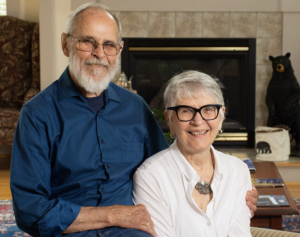
Marisue and John Pickering, long associated with the University, have volunteered countless hours for the benefit of the University. They knew that even those of us with considerable tenure were not familiar with all the treasures of the UMaine campus.
They initiated, researched and created six self-guided campus tours that can be accessed and followed via smart phone (visit Self-Guided Walking Tours):
- “Art Inside” directs you to collections and special exhibits around the campus and, once there, describes the works and the artists
- “The World of Trees” shows you the profusion of varieties for which we were designated an arboretum
- “Garden Tour” takes you to landscaping features, as well as specially designed gardens and courtyards, that are reflective of UMaine’s campus plans
- ”Sculpture Tour” shows a sampling of the University’s many works of art
- “Circle the Mall” showcases the 950-foot-long tree-lined pedestrian green space in the heart of campus
- “Historic District Tour” explores 10 architecturally significant structures comprising the oldest section of the campus. In all the tours, there is an abundance of interesting detail for both the visitor and the seasoned employee or retiree. John and Marisue’s exemplary service to the University is truly appreciated.
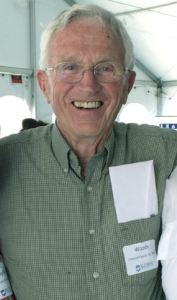
Woody Carville was a student-athlete, coach and administrator at the University for nearly 40 years. Retirement in the early 90s didn’t stop him. Since then he has maintained his passion for athletics by regularly ushering at football games and as a member of the M Club, he has served as its treasurer and volunteered at their special events. In addition, he has ushered for years at the Collins Center for the Arts. Finally, he is an active alumnus. He has been a class officer, planned class reunions and has made hundreds of stewardship phone calls to alumni. He took it upon himself to write letters of condolence to the families of hundreds of alumni who passed away. His exceptional volunteer service has meant a great deal to the University.
The President’s Council and all of UMaine congratulate our winners and treasure their services to our beloved university. We all benefit from those who bring their best to this institution.
A Note from UMaine President Ferrini-Mundy
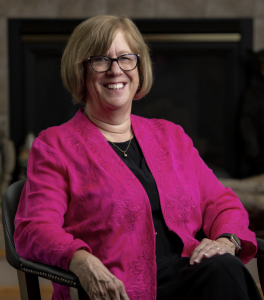
Greetings,
I hope that you are well during these extraordinary times. Please know that I appreciate all that you have done and continue to do for the University of Maine.
I am very pleased that the University of Maine System responded to concerns expressed by many of you regarding health benefits, and that now you can retain the group plan and have options for exchange-based individual plans.
Today, I’d like to share with you several of the many outreach and research projects that faculty, staff and students at the University of Maine, University of Maine at Machias and systemwide have engaged in during the pandemic.
As you know, addressing complex challenges of the 21st century is part of our mission, and I am so proud that we are doing just that. I hope that you are proud, too, as each of you created the foundation that supports this kind of incredible service to the people of Maine, and beyond.
Last spring, nearly 200 students and faculty members systemwide who are CNAs or licensed nurses responded to UMS Chancellor Dannel Malloy’s call to serve in the fight against COVID-19. They fanned out to work across the state, including at two of Maine’s hardest hit long-term care facilities. To further be responsive to pandemic-related workforce needs, at UMaine, early graduation was facilitated for 38 nursing students.
UMaine biomedical engineer Caitlin Howell and virologist Melissa Maginnis are conducting research with scientists at the University of Massachusetts Amherst that involves using a bioengineered membrane to detect and analyze airborne coronavirus droplets. The project’s inspiration is the pitcher plant’s liquid membrane that traps insects.
When hand sanitizer was in short supply, UMaine and craft distillers and brewers in Maine partnered to make it. We also distributed more than 3,000 gallons of the sanitizer directly to 100-plus health care providers across the state. (Pictured below.)
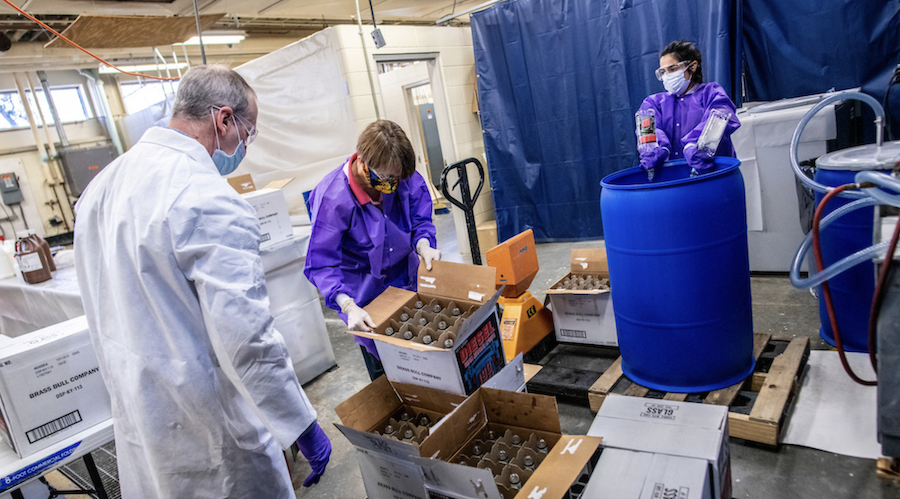
At the request of the Maine CDC, UMaine also manufactured more than 4,000 bottles of solution for the Maine National Guard to conduct aerosol fit tests of N95 masks. Testing is required before masks can be used by the state’s first responders and front-line health care workers.
A UMaine economics professor and graduate students worked with the state to develop forecasts of how COVID-19 could affect Maine’s economy, as well as prospects for recovery and guidance for policymakers.
The College of Education and Human Development created a website to address questions and provide research-backed information for teachers and parents about remote learning, social-emotional learning, trauma-informed teaching, special education and literacy.
Because we couldn’t hold in-person concerts, the Collins Center for the Arts launched an online talent contest called the Maine Talent Showcase. More than 100 people entered and you can enjoy the performances of the 10 talented finalists on the CCA website.
University of Maine Cooperative Extension also moved its workshops, classes, and events online and created new resources — including 32 new publications — to support Maine farmers, U-pick operations, cut flower and seedlings industries and consumers.
Engineers, computer scientists and students created 3D printing design plans and code for reliable infrared (IR) thermometers, then shared them online for free, so hobbyists could bolster the nation’s supply during the shortage.
The Maine Folklife Center, Maine Studies Program and the Hutchinson Center collaborated on the Jack Pine Project, which invited Mainers to tell the stories of the COVID-19 pandemic through the arts.
A UMaine and Maine Manufacturing Extension Partnership innovation team worked with hospitals and manufacturing collaborators to build, test and produce two variations of an “aerosol box.” The boxes protect front-line medical staff as they intubate and transport patients who may have COVID-19. Hospitals can sterilize and reuse the boxes.
New media students used audiovisual and interactive technologies to develop apps and activities to help people de-stress, learn new skills and entertain themselves during the pandemic, to cope and adapt.
The University of Maine System conducts wastewater sampling to identify COVID-19 infection to limit its spread on campuses, including at UMaine, University of Maine at Fort Kent, University of Southern Maine’s Gorham campus, and University of Maine at Presque Isle, as well as in the communities of Orono and Farmington.
As you can see, we’re striving to accomplish important work. And do even more. The Harold Alfond Foundation’s $240 million commitment to the University of Maine System will be transformative and will allow us to implement even more creative ideas and programs to serve the students and all people of Maine.
For more information about these projects, and to stay up-to-date with our new discoveries, and outreach, please visit umaine.edu and follow us on social media platforms.
We safely welcomed students back to the campuses in late January, ready for another rewarding and meaningful semester during these unprecedented times. Like last fall, we’ll follow public health and safety practices. And this semester, we’ll be able to test and promptly report results for every member of our on-campus communities each week.
I wish you all a healthy, safe and fulfilling 2021. Please be in touch if you have questions or ideas.
Sincerely,
Joan Ferrini-Mundy
President
An Interview with Dr. Hannah Carter, Dean of the University of Maine Cooperative Extension
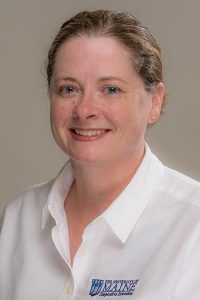
Could you share your background and why you felt it was a good fit for the position of Dean of Cooperative Extension?
I can’t think of a better fit because I am a product of Maine Cooperative Extension. I grew up in the 4H Program in Aroostook County. My first real job outside of working on my father’s potato farm was working in the summer as an Integrated Pest Management (IPM) scout in the Aroostook County Extension office.
My first job after my undergraduate degree was back in the Extension office full time as an IPM Professional. My Graduate work was in Extension Education and Agricultural Leadership. I feel like in a lot of ways I have come full circle, to begin as a 4Her and be back as the Dean of Cooperative Extension.
What role do you see 4H playing in connecting Maine’s young people with the opportunities available through the University of Maine System?
We are working with enrollment management to establish a 4H scholarship, available across all campuses, for kids who participated in the 4H Program. We hope it will be an incentive to keep kids here in Maine.
We are also exploring how kids can get credit for their 4H activities. For example, each year 4H youth participate in a statewide public speaking tournament. We are evaluating ways in which we could award credit so that when they come to the university, they won’t have to take Public Speaking 101. The university has been open to that concept and we are looking at other activities that might apply.
What roles do retirees currently have with the organization?
Quite a few retirees are Master Gardener volunteers and some are involved in the 4H program, either through clubs or school programs, while other retirees are serving on Extension Association Boards. A former administrator serves on the 4H Foundation Board and other administrators are being plugged in where they are needed.
Would you be open to creating an Extension Retirees Corps? What other potential roles do you see for retirees?
That is an awesome idea. First, we need to know our audience of volunteers and their appetite for being connected to Extension.
Frequent communication is most important. I want to have all our retirees receive our Extension newsletter so they could keep informed about Extension and learn about volunteer opportunities.
We have base line needs that we aren’t filling because of budget and retirements. There is an opportunity to plug our former faculty/professionals in those areas. I feel stipends or contract work is all on the table but I want people to do it because they really want to do it.
Another opportunity for retirees is serving as mentors to new faculty and professionals. We have wonderful mentors, however, younger faculty/professionals require lots of time and guidance. Sometimes I feel our established faculty doesn’t have the time available to provide the support they need. Wouldn’t it be great if we could do a mentor match program with retirees?
The President’s Council of Retired Employees
Dusty Dowse (Chair)
Nancy Boyington (Secretary)
Marian Dressler
Michael Pullen
Susan Randall
Phyllis Thibodeau
Gloria Vollmers
David Bagley
Richard Judd
Thomas Sandford
Louis Bassano
Kimberly Whitehead
John Diamond
Jeffery Mills
Sarah McPartland-Good
University of Maine employees and retired employees are an important part of the fabric of the University of Maine. Gifts totaling more than $10 million in support of the University have come from these groups over the years. Many thanks to all of you!
The University of Maine is an equal opportunity/affirmative action institution.
